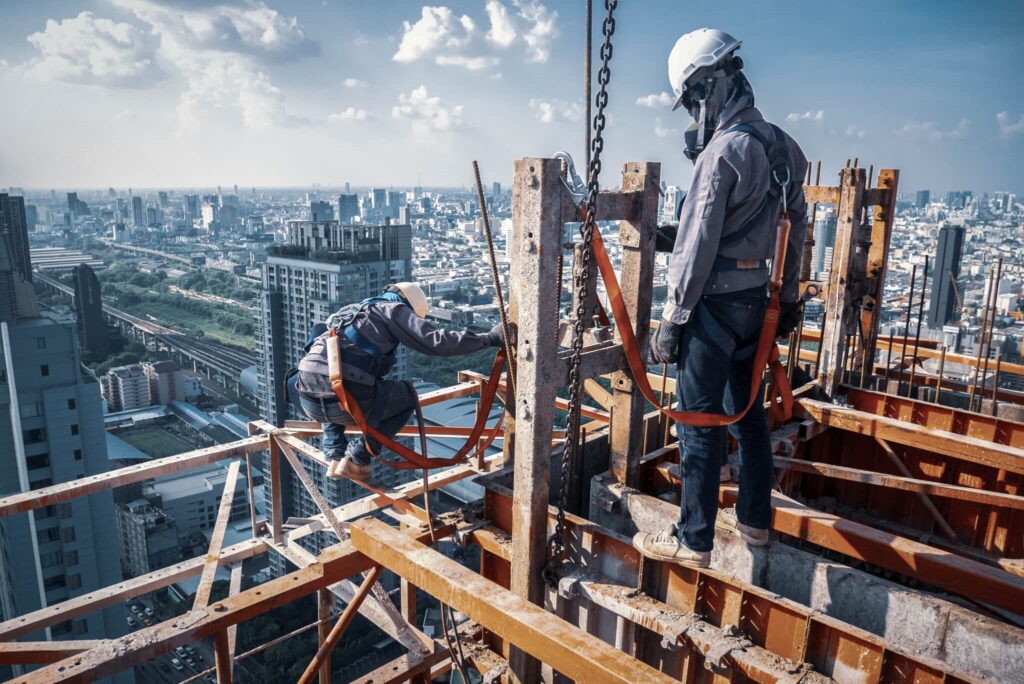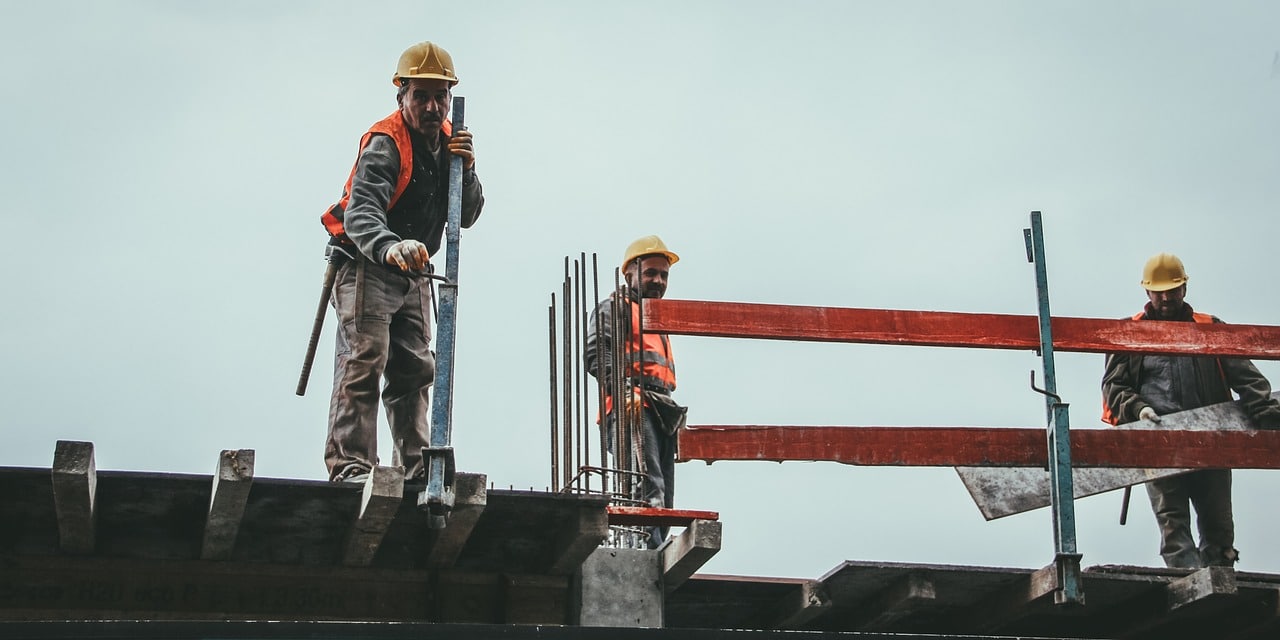Safety violations on construction sites aren’t uncommon—just look at these statistics:
- Over 20% of all fatal workplace accidents in the EU during 2019 took place in the construction industry, making it the top industry for fatal injuries.
- During that same time, 59.5% of non-fatal accidents due to safety violations took place on construction sites in the EU.
- In 2020, the US had 4,764 fatal workplace accidents—over 20% of which were attributed to the construction and extraction industries.
We’ll discuss recent OSHA safety violations issued to construction companies and what you can do to avoid them.
Free eBook: Guide to a digitised QHSE organisation
What violations are most commonly cited by OSHA?
OSHA issued over 22,000 citations in the construction industry last year—that’s more than every other industry combined. And the fines that came from those citations totalled over $80 million.
Let’s explore the four most common safety violations in construction work cited by OSHA and what you can do to prevent them on your job sites.
These safety violation examples include:
1. Slips, trips, and falls
OSHA standard 1926.501 describes an employer’s duty to provide fall protection to prevent slips, trips, and falls. These safety violations often occur when construction sites lack proper fall protection equipment, have people working on uneven surfaces, or don’t provide training on how to use the equipment.
Out of 5,616 citations under this standard in 2021, 5,346 were issued to construction companies. In addition, OSHA handed out 2,101 citations for unsafe ladder use—the organisation issued less than 60 of these citations to every other industry combined. These two citations cost construction companies over $34 million in one year.
You can avoid these safety violations by:
- Keeping your construction site organised and well lit
- Providing workers with fall protection systems
- Implementing guard rails in areas with significant drops
- Training workers on how to safely mount and dismount ladders

2. Being struck by an object
The second safety violation most commonly cited by OSHA is “struck by” accidents. This can mean workers being hit by machinery or falling materials, equipment, etc. There are various regulations in place to help prevent these safety violations, particularly regarding personal protective equipment (PPE).
1,497 out of 1,514 citations for the lack of eye and face protection and 844 out of 865 citations for the lack of head protection given out in 2021 were in the construction industry. These citations for improper PPE cost construction companies over $7 million throughout the year.
You can help prevent “struck by” safety violations by:
- Properly securing materials, tools, and equipment
- Providing workers with high-visibility clothing
- Stacking materials so they can’t slide off
- Training equipment operators to only work in areas with a clear line of sight
Check this checklist: Workplace Safety Inspection
3. Being caught between objects
After “struck by” safety violations comes “caught between” accidents. These safety violations lead to workers getting injured from being caught between equipment, vehicles, and materials. These accidents commonly occur when project managers and general contractors fail to follow OSHA’s general safety provisions and safety training standards.
Safety violations in those two categories resulted in 397 and 865 citations for construction companies last year, leading to almost $6 million in fines.
You can avoid “caught between” safety violations by:
- Teaching the importance of maintaining awareness of your surroundings
- Providing protective systems for excavations and trenches
- Stopping workers from wearing loose clothing/items on the construction site
- Emphasising the dangers of working between immovable objects and equipment
4. Shocks and electrocution
Finally, we have safety violations that lead to shocks and electrocution, resulting in injuries from minor burns to permanent nerve damage, death, and everything in between. While these safety violations are significantly less common than the three listed above, they can lead to easily preventable accidents on construction sites.
OSHA issued 48 citations for the improper use of lockout/tagout and 206 citations for wiring methods, components, and equipment that presented shock and electrocution hazards, resulting in just over $600,000 in fines for construction companies.
You can prevent these safety violations by:
- Providing workers with proper PPE
- Training workers about the dangers of energised equipment and machinery
- Using lockout/tagout whenever performing maintenance
- Ensuring that all wiring methods and components are up to code
More to read: 10 construction safety tips to improve your HSE performance

Avoid safety violations on your construction sites
To avoid safety violations and ensure everyone’s safety on your construction sites, it’s important to understand the risks and how accidents happen. Training and education are as vital to your operations as providing workers with the proper tools and PPE to get the job done safely.
For more strategies to avoid common safety violations in construction work, check out these construction safety tips. You can also download our free ebook: Guide to a Digitised QHSE Organisation to learn how to reduce workplace injuries by improving your safety management and QHSE processes.
Construction companies that want to avoid safety violations and ensure everyone’s safety on site need to standardise their QHSE (quality, health, safety, and environment) processes. That’s where we come in.
With LetsBuild’s incident reporting solution LB Aproplan, you can minimise risks and standardise QHSE by:
- Reporting and maintaining documentation of every on-site incident
- Storing all of your QHSE information in one place
- Tracking every measure you take to improve on-site safety
- Applying preventative measures to continually improve your safety procedures
Better safe than sorry—get your personalised demo here.
For more strategies to avoid common safety violations in construction work, check out these construction safety tips. You can also download our free ebook: Guide to a Digitised QHSE Organisation to learn more about improving QHSE processes in your organisation.




